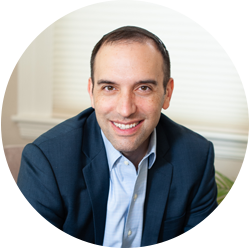Dear Friends,
We continue to watch with grave concern the buildup of Russian troops on the Ukrainian border and the threat of an invasion. For our community, this is more than an international crisis — it is personal.
Core to CJP’s mission and to being a vibrant Jewish community is care and responsibility for the well-being of Jews around the world, especially in times of crisis. Together with Jewish federations around the country, we work closely with our global partners – such as the American Jewish Joint Distribution Committee (JDC) and The Jewish Agency for Israel (JAFI) – to ensure that individuals and communities around the world have resources and services they need to survive and thrive.
Since 1990, we have built a deep and lasting partnership with the Jewish community of Dnipro, Ukraine, of approximately 40,000 people, through our Dnipro Kehillah Project. This has meant regular visits between our communities, passionate volunteers connecting, joint projects, shared experiences, and, most recently, virtual meetings when we cannot be together physically. We have built lasting, authentic people-to-people relationships of shared care and responsibility. Dnipro has become our extended Jewish family.
Earlier this week we made emergency grants directly to our partners in Dnipro and to the JDC to support food, shelter, energy, and other critical needs. The note we received from a leader of the Dnipro community powerfully captured the essence of our relationship:
“You cannot imagine what this means in light of the situation we are facing. We are trying and do stay optimistic, but the consequences of the tension, escalation, and other negative factors make everyday lives harder. This vital grant has multidimensional values. It is not just an important additional resource to cope with the challenges, it is moral. It is from the soul. It heals and encourages.”
I was struck by this beautiful description. It made me think of the dramatic climax of the Joseph stories in the Book of Genesis, when Joseph’s transformed brother, Yehuda, tries to save the life of his younger brother, Benjamin. Yehuda pleads with Joseph by describing the promise he made to his father to bring Benjamin back from Egypt: “Your servant has pledged himself for the boy to my father, saying ‘If I do not bring him back to you, I shall stand guilty before my father forever.’”
It is hard not to see this moment as an explicit tikkun, repair, for the callous and avoidant response of Cain when God asks him for the whereabouts of his brother Abel: “Am I my brother’s keeper?” On the contrary, Yehuda describes his responsibility for Benjamin with the word “pledge” (in Hebrew, arev), which has the legal connotation of “collateral,” but which also means “connected and bound together.” It is the word that anchors the Jewish idea "Kol Yisrael arevim zeh l’zeh" – "All of Israel are bound to one another and, therefore, collectively responsible for one another."
The idea of arevut is at the heart of what it means to be one Jewish People. The beautiful note of gratitude also reminds us that this is more than a moral concept. It is an existential and a spiritual one. At a time of chronic disconnection, polarization, and social isolation, we affirm that, as Jews and human beings here and around the world, we are not alone. We are inheritors and co-creators of a story that is still unfolding; we are part of a global Jewish family that needs us, and that imbues our individual lives with meaning, purpose, and responsibility.
Indeed, I am my brother’s keeper, because we are in this together, and what a blessing that is.
Shabbat Shalom,
Rabbi Marc Baker

About the Author
CJP President and CEO Rabbi Marc Baker is an educator, writer, and leadership mentor who is devoting his life to Jewish learning and building Jewish communities.
